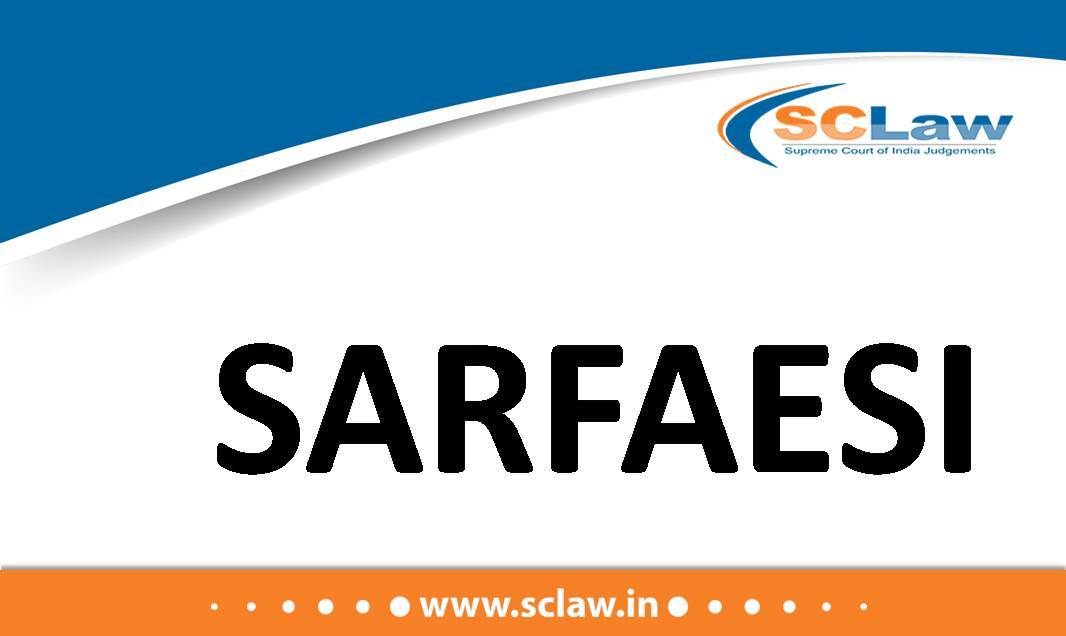Kerala Micro Small and Medium Enterprises Facilitation Act, 2019 – Section 10 – Overriding effect – Once consent is taken from the Pollution Control Board, the necessity for reading down Section 10 of the Kerala MSME Act, for the purpose of protecting the environment, does not arise.
SUPREME COURT OF INDIA DIVISION BENCH JOLLY GEORGE AND ANOTHER — Appellant Vs. GEORGE ELIAS AND ASSOCIATES AND OTHERS — Respondent ( Before : V. Ramasubramanian and Pankaj Mithal, JJ.…
Vedanta University case – Land Acquisition Act, 1894 – Section 4(1) and 6 – Acquisition of lands – it is required to be noted that the lands to be acquired are agricultural lands belonging to 6000 families and their only source of livelihood is on the agricultural lands, which cannot be compensated in terms of money, therefore, the proposal made now has to be rejected outright.
SUPREME COURT OF INDIA DIVISION BENCH ANIL AGARWAL FOUNDATION ETC. ETC. — Appellant Vs. STATE OF ORISSA AND OTHERS — Respondent ( Before : M.R. Shah And Krishna Murari, JJ.…
HELD Merely because, the government servant has retired on the very next day, how can he be denied the annual increment which he has earned and/or is entitled to for rendering the service with good conduct and efficiently in the preceding one year.
SUPREME COURT OF INDIA DIVISION BENCH THE DIRECTOR (ADMN. AND HR) KPTCL AND OTHERS — Appellant Vs. C.P. MUNDINAMANI AND OTHERS — Respondent ( Before : M.R. Shah and C.T.…
Appellants have been admitted to be owner of the property being Khasra No. 4833 the findings recorded by the lower Appellate Court as well as the High Court are perverse if considered in the light of two material documents which are in the form of admission of respondents themselves regarding the identity of the property in their possession High court set aside
SUPREME COURT OF INDIA DIVISION BENCH MURTI SHRI DURGA BHAWANI (HETUWALI) TRUST AND ANOTHER — Appellant Vs. SH. DIWAN CHAND (DEAD) THROUGH LRS AND OTHERS — Respondent ( Before :…
Accused-appellant doing the work of a tailoring – Weapon used is a scissors which is not a normal weapon of offence in case there is any intention to cause death – With the evidence on record and the kind of weapon used, the offence will not fall within Section 307 IPC – 326 IPC made out – Already undergone
SUPREME COURT OF INDIA DIVISION BENCH PANCHRAM — Appellant Vs. THE STATE OF CHHATTISGARH AND ANOTHER — Respondent ( Before : Abhay S. Oka and Rajesh Bindal, JJ. ) Criminal…
Creation and sanction of posts is a prerogative of the executive or legislative authorities and the court cannot arrogate to itself this purely executive or legislative function, and direct creation of posts in any organisation.
SUPREME COURT OF INDIA DIVISION BENCH THE GOVERNMENT OF TAMIL NADU AND ANR. ETC. ETC. — Appellant Vs. TAMIL NADU MAKKAL NALA PANIYALARGAL AND ORS. ETC. ETC. — Respondent (…
SARFESAI Act, 2002 – Section 13(2) – If someone has been called upon to participate in the bidding process, the facts must be made clear to the parties for the reason that there is always a high variance between market realizable value and the distress value of the mortgaged property when put to public auction under the provisions of the Act, 2002.
SUPREME COURT OF INDIA DIVISION BENCH MOHD. SHARIQ — Appellant Vs. PUNJAB NATIONAL BANK AND OTHERS — Respondent ( Before : Ajay Rastogi and Bela M. Trivedi, JJ. ) Civil…
RSS Route Marches in the State of Tamil Nadu – Permission to RSS (Rashtriya Swayamsevak Sangh) is granted – Special Leave Petition against the order of the Division Bench of Madras High Court directing the State Police to grant permission to RSS (Rashtriya Swayamsevak Sangh) is dismissed.
SUPREME COURT OF INDIA DIVISION BENCH K. PHANINDRA REDDY, I.A.S. AND OTHERS — Appellant Vs. G. SUBRAMANIAN — Respondent ( Before : V. Ramasubramanian and Pankaj Mithal, JJ. ) Special…
(IPC) – Section 302/149 – Murder – Appeal against acquittal – Accused being a part of the unlawful assembly and who also participated in commission of the offence, he shall also be liable to be convicted for the offence under Section 302 IPC with the aid of Section 149 IPC
SUPREME COURT OF INDIA DIVISION BENCH SURENDRA SINGH — Appellant Vs. STATE OF RAJASTHAN AND ANOTHER — Respondent ( Before : M.R. Shah and C.T. Ravikumar, JJ. ) Criminal Appeal…
Lapse of acquisition proceedings – Impugned judgments and orders passed by the High Court declaring that the acquisition with respect to the lands in question are deemed to have lapsed under section 24(2) of the Act, 2013 are hereby quashed and set aside – Matter remanded
SUPREME COURT OF INDIA DIVISION BENCH HARYANA STATE INDUSTRIAL AND INFRASTRUCTURE DEVELOPMENT CORPORATION LTD. (HSIIDC) & OTHERS — Appellant Vs. M/S HONEYWELL INTERNATIONAL (INDIA) PVT. LTD. — Respondent ( Before…












